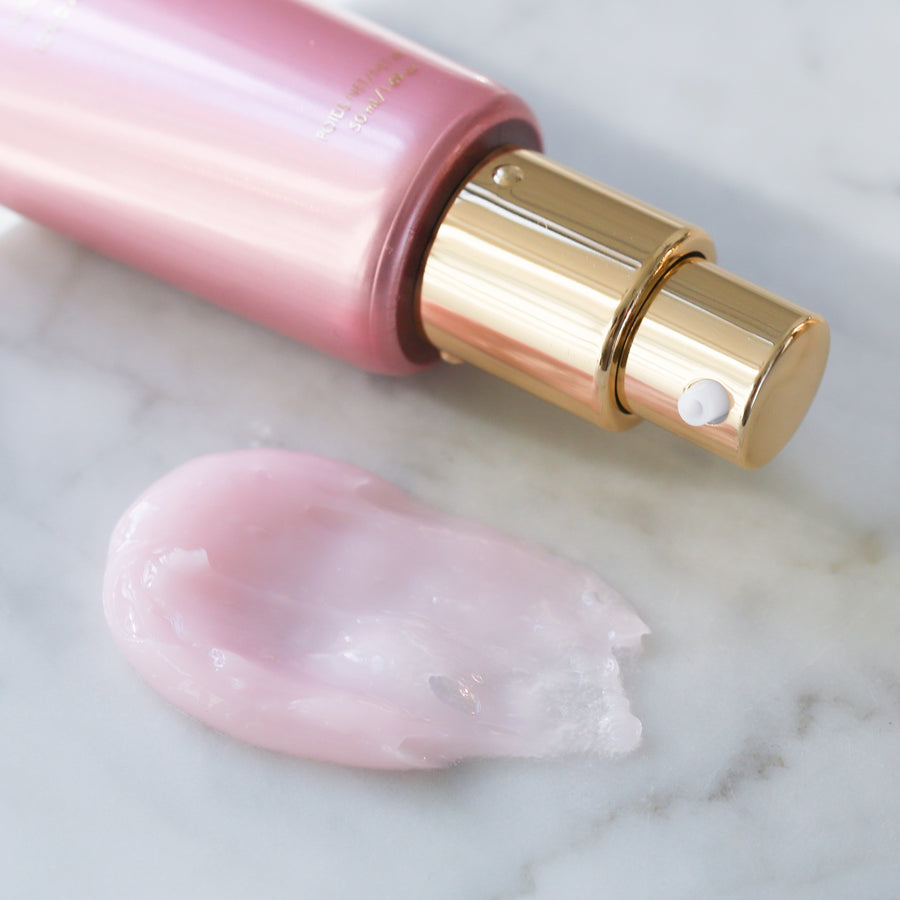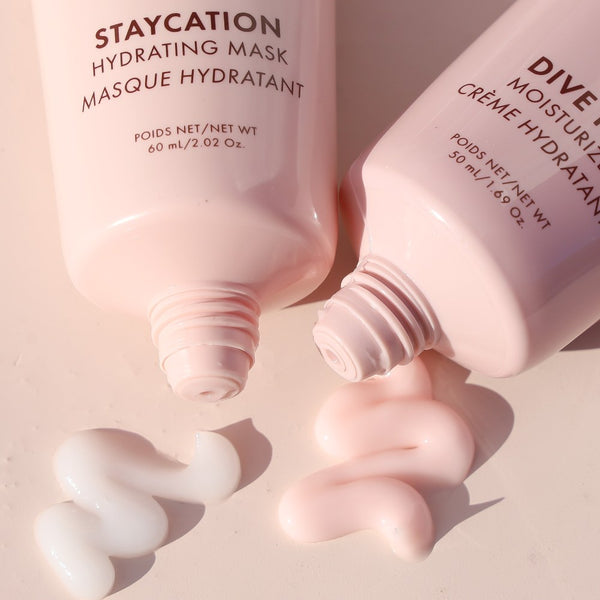What is Lactic Acid and Should You Be Using It In Your Skincare Routine?
By Emily Chiang | Jun 21, 2019
Acids in your beauty products may seem like a trippy concept to some - which is why we’re here to break down these powerful ingredients. If you want a basic rundown on the “alphabet soup” of beauty, read this post to start. But in today’s post, we are going to deep dive into the AHA family and learn more about one of Team Wander’s favorite acids: Meet lactic acid.
What is lactic acid?
Lactic acid is one of the most popular siblings in the AHA family. It is used in many skincare products and it is one of the more gentle hydroxy acids. Lactic acid is naturally found in dairy products such as sour milk and yogurt.
How often should you use it?
Although lactic acid is gentler than other hydroxy acids, you should refrain from using it too often. We recommend using it once to twice a week to avoid over-exfoliating your skin.
What are the benefits of adding lactic acid into your routine?
Lactic acid works amazingly for exfoliation. It gets rid of the dead and dull skin cells on your skin’s surface which helps to stimulate cell turnover, cell renewal, and collagen renewal. Using lactic acid to exfoliate helps you achieve a brighter, smoother, and more youthful complexion.
Not only does lactic acid get rid of dead skin cells, it helps improve your skin’s hydration levels! It keeps your skin moisturized and feeling less dry. However, this doesn’t mean you should hop into a bathtub full of milk and expect to see instant results. Lactic acid should be used in moderation as with any other acid.
Keep in mind that if you plan on using lactic acid or if you are currently using lactic acid, your skin is going to be more sensitive to the sun. To prevent your skin from sunburn and sun damage, use sunscreen daily. If you choose not to, you can make the issues you are trying to solve, like dark marks, worse in the long run!
However, wearing sunscreen daily should be a part of your skincare routine. Apply sunscreen with an SPF of 30 or higher every day, whether or not the sun is shining. It will help to decrease the development of wrinkles, protect against skin cancer, and help your skin barrier stay healthy!
What products should I reach for that feature lactic acid?
One of our favorite products that features this powerful acid is Fast Lane Instant Facial. It is formulated with an effective blend of glycolic, salicylic, and lactic acids that work to smooth skin's texture and unclog congested pores by gently clearing the build-up of dead skin cells. Who wouldn’t want to be on the fastest track to brighter and smoother skin?! This product puts a facialist in a tube so that you can spend less time (and money) in the spa and more time creating your own spa day in your bathroom.
Have you used any products with lactic acid yet? Let us know if lactic acid has changed your skin for the better @wander_beauty!
What is Lactic Acid and Should You Be Using It In Your Skincare Routine?

Acids in your beauty products may seem like a trippy concept to some - which is why we’re here to break down these powerful ingredients. If you want a basic rundown on the “alphabet soup” of beauty, read this post to start. But in today’s post, we are going to deep dive into the AHA family and learn more about one of Team Wander’s favorite acids: Meet lactic acid.
What is lactic acid?
Lactic acid is one of the most popular siblings in the AHA family. It is used in many skincare products and it is one of the more gentle hydroxy acids. Lactic acid is naturally found in dairy products such as sour milk and yogurt.
How often should you use it?
Although lactic acid is gentler than other hydroxy acids, you should refrain from using it too often. We recommend using it once to twice a week to avoid over-exfoliating your skin.
What are the benefits of adding lactic acid into your routine?
Lactic acid works amazingly for exfoliation. It gets rid of the dead and dull skin cells on your skin’s surface which helps to stimulate cell turnover, cell renewal, and collagen renewal. Using lactic acid to exfoliate helps you achieve a brighter, smoother, and more youthful complexion.
Not only does lactic acid get rid of dead skin cells, it helps improve your skin’s hydration levels! It keeps your skin moisturized and feeling less dry. However, this doesn’t mean you should hop into a bathtub full of milk and expect to see instant results. Lactic acid should be used in moderation as with any other acid.
Keep in mind that if you plan on using lactic acid or if you are currently using lactic acid, your skin is going to be more sensitive to the sun. To prevent your skin from sunburn and sun damage, use sunscreen daily. If you choose not to, you can make the issues you are trying to solve, like dark marks, worse in the long run!
However, wearing sunscreen daily should be a part of your skincare routine. Apply sunscreen with an SPF of 30 or higher every day, whether or not the sun is shining. It will help to decrease the development of wrinkles, protect against skin cancer, and help your skin barrier stay healthy!
What products should I reach for that feature lactic acid?
One of our favorite products that features this powerful acid is Fast Lane Instant Facial. It is formulated with an effective blend of glycolic, salicylic, and lactic acids that work to smooth skin's texture and unclog congested pores by gently clearing the build-up of dead skin cells. Who wouldn’t want to be on the fastest track to brighter and smoother skin?! This product puts a facialist in a tube so that you can spend less time (and money) in the spa and more time creating your own spa day in your bathroom.
Have you used any products with lactic acid yet? Let us know if lactic acid has changed your skin for the better @wander_beauty!





